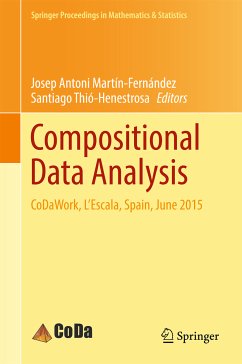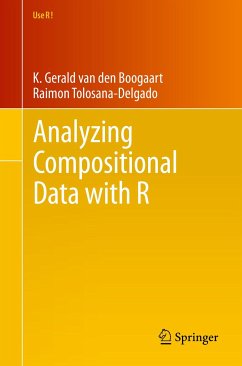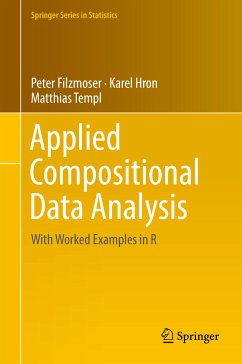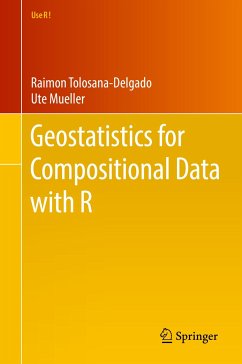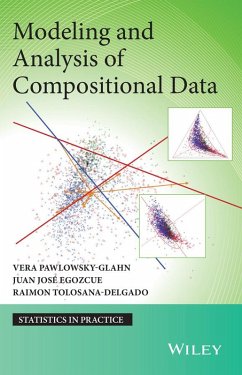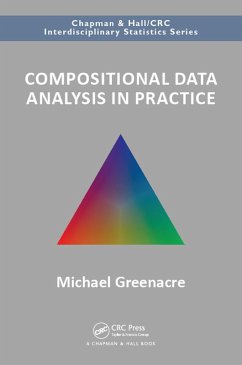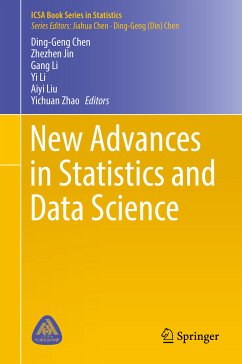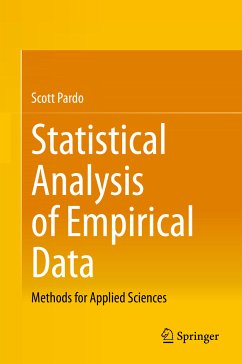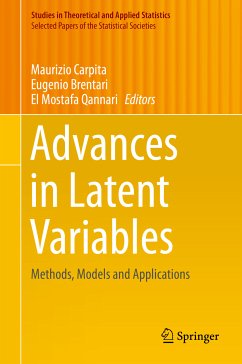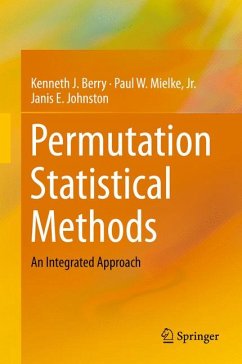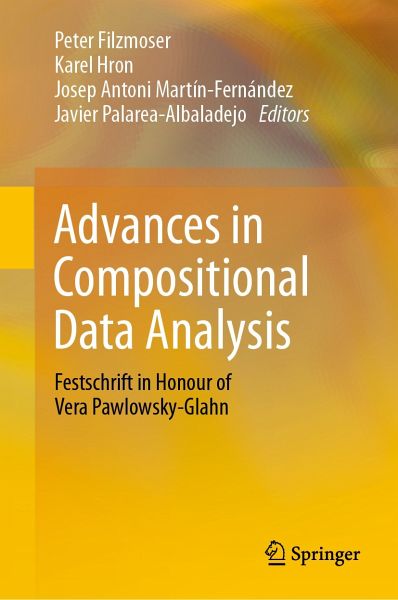
Advances in Compositional Data Analysis (eBook, PDF)
Festschrift in Honour of Vera Pawlowsky-Glahn
Redaktion: Filzmoser, Peter; Palarea-Albaladejo, Javier; Martín-Fernández, Josep Antoni; Hron, Karel

PAYBACK Punkte
64 °P sammeln!
This book presents modern methods and real-world applications of compositional data analysis. It covers a wide variety of topics, ranging from an updated presentation of basic concepts and ideas in compositional data analysis to recent advances in the context of complex data structures. Further, it illustrates real-world applications in numerous scientific disciplines and includes references to the latest software solutions available for compositional data analysis, thus providing a valuable and up-to-date guide for researchers and practitioners working with compositional data. Featuring selec...
This book presents modern methods and real-world applications of compositional data analysis. It covers a wide variety of topics, ranging from an updated presentation of basic concepts and ideas in compositional data analysis to recent advances in the context of complex data structures. Further, it illustrates real-world applications in numerous scientific disciplines and includes references to the latest software solutions available for compositional data analysis, thus providing a valuable and up-to-date guide for researchers and practitioners working with compositional data. Featuring selected contributions by leading experts in the field, the book is dedicated to Vera Pawlowsky-Glahn on the occasion of her 70th birthday.
Dieser Download kann aus rechtlichen Gründen nur mit Rechnungsadresse in A, B, BG, CY, CZ, D, DK, EW, E, FIN, F, GR, HR, H, IRL, I, LT, L, LR, M, NL, PL, P, R, S, SLO, SK ausgeliefert werden.



